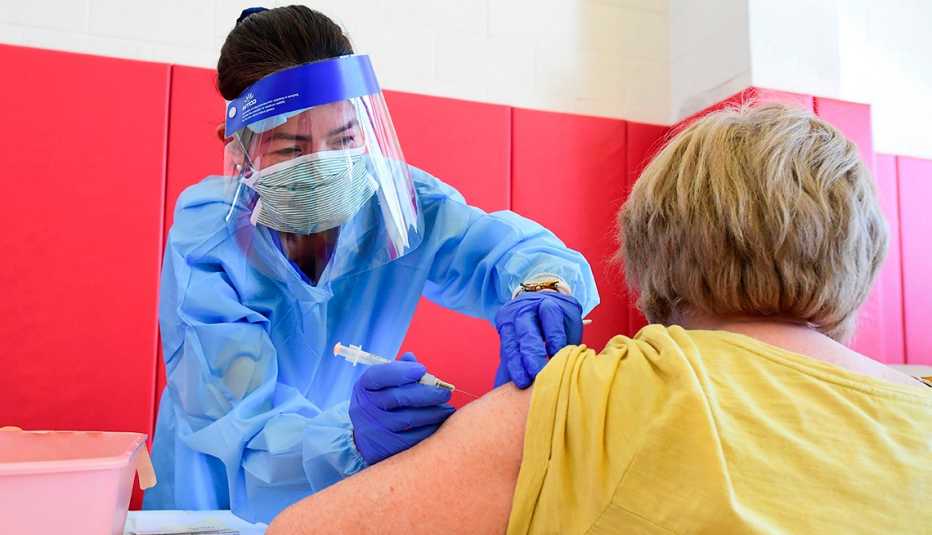AARP Hearing Center


Editor’s note: On Jan. 13, 2022, the U.S. Supreme Court determined that the federal COVID-19 vaccine mandate for large private employers could not proceed, but the court allowed the mandate for workers at health care facilities that receive Medicare and Medicaid funds to take effect. For more information on those rulings, go to this article. The following article, published before those court decisions, offers context on COVID-19 vaccine mandates.
As people start to return to office buildings after working remote for more than a year in some cases, more employers are taking steps to deter the spread of COVID-19 in their workplaces. One practice that has gained momentum is the requirement that workers either get vaccinated or submit to regular testing for COVID-19.
The increased use of vaccine mandates is a big change from early 2021, when most companies were merely encouraging their workers to get shots, with some businesses offering small stipends or paid time off as additional incentives to get the vaccine.
"Employers initially began with voluntary vaccine programs because they thought that there would be excitement and enthusiasm to be vaccinated,” says Diane Seltzer Torre, an employment law attorney with the Seltzer Law Firm. “The problem became that enthusiasm was not the case for certain regions, and businesses had to start looking at workers not being vaccinated with [the delta] variant coming into play."
Hoping both to make their workplaces safer and prevent the widespread temporary shutdowns that caused extensive unemployment last year, more employers are now making it a requirement for their employees to get vaccinated.
"Every organization, every company wants to ensure that they can create the workplace conditions for people to come to work and do their best work, and part of doing the best work is providing emotional and psychological safety,” says Margie Warrell, a workplace policy expert and author of Stop Playing Safe: How to Be Braver in Your Work, Leadership and Life. “Given the concerns around the spread of COVID, many organizations are making the judgment call that the upsides of mandating vaccination are going to offset the downsides."
Here are the things workers should know now about vaccine mandates:



































































More on work
New Programs Help Older Adults Train for Jobs in Manufacturing
AARP works with community colleges in Connecticut, Florida and Massachusetts to provide affordable courses
15 Work-From-Home Jobs That Don't Require a College Degree
Experience can trump education when it comes to these remote positions
5 Ways the Pandemic Has Changed Job Hunting
Hiring experts tell how looking for work will be different in 2021